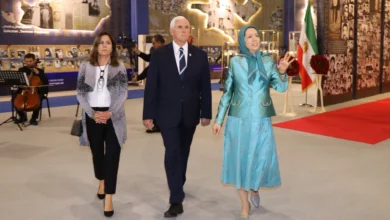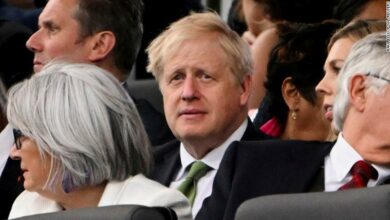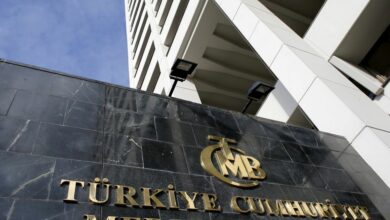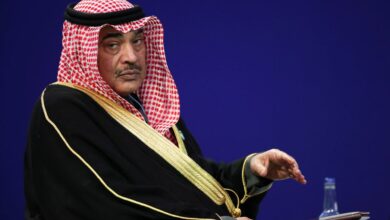The first round of parliamentary elections in Egypt has left behind a political scene that is simultaneously frustrating and puzzling. The frustration is readily apparent–domestic observers and some local and international media correspondents have documented numerous violations that marred the elections. Most notably, security forces staged an organized intervention on behalf of the ruling National Democratic Party (NDP)’s candidates, hindered some judges overseeing the elections from doing their job, and blocked many observers from either entering the polling stations or remaining long enough to evaluate the election process. Vote-buying was widespread, and acts of violence at polling places resulted in some loss of life and damage to public property.
This dishearteningly lengthy list of violations greatly limits the integrity, transparency, and competitiveness of the first round of elections. Regardless of the outcome of the 5 December run-off elections, these irregularities strip the credibility of the ruling establishment’s promise to hold free and pluralistic elections of which Egypt would be proud–and which would have been a huge step forward on the path of democratization.
NDP Monopoly of Parliament
Based on the results of the first round of voting and a map of the races predicted for the run-off election, it is clear that Egyptian citizens will have an NDP-controlled People’s Assembly for the next five years. The NDP won over 90 percent of the seats, with opposition and independent candidates’ share declining from 24 percent in the 2005–2010 parliament to less than 10 percent today.
Despite its relatively strong numbers in the last parliament, the opposition was still unable to stop the NDP from pushing through its constitutional amendments and legislative agenda, and was ineffective in its watchdog role and repeated attempts to hold the executive branch accountable. One would assume, then, that the ruling party’s absolute monopoly of the legislative process will mean the opposition–with very little representation in parliament–will enjoy an even more flimsy oversight role in the next five years.
The 2010 parliamentary elections–by almost completely unifying the legislative and executive branches–will only further aggravate the existing problems in Egyptian politics. The People’s Assembly will have a ruling party controlling 90 percent of the seats and a stunted opposition with only a handful of non-influential deputies, while the Muslim Brotherhood–whose deputies over the past five years comprised the most organized faction and the most effective watchdog within the opposition–is completely absent.
This inevitably calls into question how much such a legislature represents voters’ actual preferences and political choices. It will lack the legitimacy of popular approval, which comes only from fair and transparent elections. A parliament like the newly elected assembly only deepens the negative repercussions of one of the most serious structural imbalances in Egyptian politics, namely the weakness of the legislative branch and the continual decline of its oversight role. Oversight has been whittled down to merely a mechanism to rubber-stamp constitutional amendments, bills, and budgets submitted by the executive branch.
Increased Risk of Sectarian Tensions
At a time when Egyptian society is witnessing heightened sectarian tensions between Muslim and Christian citizens, and the security, religious freedoms, civil liberties, and political rights of Christians is being challenged around the Middle East, the new People’s Assembly in Egypt will under-represent Copts. Of its nearly 800 candidates, the NDP only had ten Copts, while the liberal Wafd Party nominated five Copts and the leftist Tagammu three Copts, in addition to a handful of independent Coptic candidates. Even making the unrealistically optimistic assumption that all of the Coptic candidates win in the run-off election, Copts will still represent less than 4 percent of the People’s Assembly, meaning they are underrepresented relative to their numbers–most unofficial estimates place Copts at 10 percent of the population–and influential role in Egyptian society.
The ruling establishment and the bulk of the opposition remain either silent on the catastrophically low Coptic representation or argue it is justified by social circumstances. The public debate over this problem has been restricted, where government and opposition leaders refuse to even discuss strategies like a “Coptic quota” or other affirmative action measures. They claim that equal citizenship rights for both Muslims and Copts are provided for in the law and guaranteed by the authorities, despite the grave shortcomings that have come to undermine these rights in the case of Copts.
In one of the few positive notes from the 2010 elections, unrelated to the struggle between the government and the opposition, the new People’s Assembly will see an unprecedented jump in women’s representation after a government initiative allocated 64 seats for a women’s quota, thus ending the era in which women had largely appointed, not elected, deputies.
NDP’s Objectives and Outcomes
In evaluating the outcome of the election and what it means for Egypt’s political scene, it is difficult to assume the ruling NDP and its various executive branch bodies manipulated the electoral process with the sole purpose of attaining total control over parliament. There is no doubt the NDP was looking to keep its comfortable, greater than two-thirds majority in the People’s Assembly, continue to consolidate its position as the dominant party, diminish the role of the Muslim Brotherhood in parliament with a series of repressive actions, and limit political competition.
But in approaching the elections, the ruling party also wanted to achieve a complementary set of political objectives, most prominently:
1. To strengthen the position of the cooperative opposition parties in the People’s Assembly by substituting Wafd, Arab Nasserist, Tagammu, and other deputies in place of the seats held by the Muslim Brotherhood members. This would ensure the NDP’s control over the legislative agenda but provide a façade of the same degree of pluralism and diversity within parliament.
2. In light of the constitutional amendments of 2007 and the extension of the emergency law, the NDP had a strategic interest in conducting the electoral process with enough integrity, transparency, and competition to enable the party to defend both moves and forge a new image of itself with the Egyptian public. This image is that of a modern party that can win fair elections without oppressing opposition parties–with the caveat that that they must be legal parties (as opposed to the banned Brotherhood) and secular (since the 2007 constitutional amendments expressly ban political activity based on religion and the Law on the Exercise of Political Rights prohibits the exploitation of religion in election campaigns).
3. Given the Western (especially American) interest in the parliamentary elections and the government’s outright rejection of international monitoring and emphasis instead on competent, serious local monitoring, the NDP aimed to stage the elections in a way that gave credibility to both the executive bodies’ management of election details and to local monitoring efforts. This was in an attempt to manufacture a positive image of the elections in front of the international public and Western governments.
The results reveal clear gaps between this set of NDP objectives and the actual outcome:
1. The NDP has 90 percent instead of 80 percent of the seats in the People’s Assembly and the opposition has only a handful of spots;
2. Wafd and the Brotherhood have no representation in parliament after they announced their boycott of the run-off election. Wafd has decided to withdraw its two candidates who won in the first round. Furthermore, the electoral process was plagued with violations related to the Higher Electoral Commission’s weakness and the security agencies’ overwhelming strength; and
3. Domestic observers and the local and international media were harassed to such an extent that the outside word is openly denouncing the elections and raising concerns over how the presidential elections in 2011 will be run.
What prevented the NDP from carrying out its objectives? Is election abuse so run-of-the-mill in Egypt? Or is it the extreme weakness of the registered opposition parties, which the NDP would have liked to see win more seats? Is it that voter turnout was so low–no more than 20 percent, according to local observers and NGOs? Or is it the structural contradiction between the desire to dominate policy making and allow a degree of limited pluralism?
Whatever the case may be, the mismatch between the post-election scene and the NDP’s objectives remains puzzling. Likewise, frustration remains because the parliamentary elections–both in the way they were run and in their results–were too far removed from fairness, competitiveness, and the essence of democracy to generate a legislature that can effectively monitor the executive branch. Consequently, the newly elected People’s Assembly is bound to lack genuine popular legitimacy.
Amr Hamzawy is research director at the Carnegie Middle East Center in Beirut.
This article is published by agreement with the Carnegie Endowment for International Peace, © 2010, (http://egyptelections.carnegieendowment.org/).




